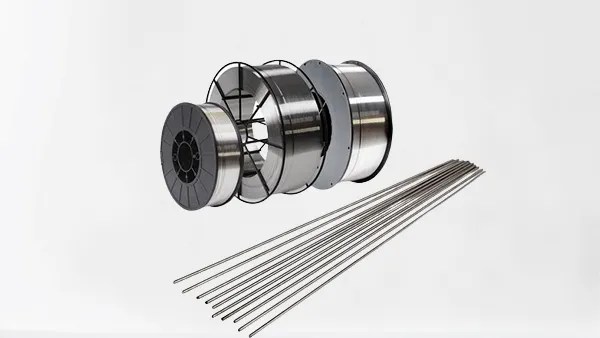Introduction
Titanium wire is a versatile material known for its high strength, lightweight properties, and exceptional corrosion resistance. These characteristics make it suitable for a wide range of industrial applications, from medical to aerospace. In this article, we will explore the features, applications, and benefits of titanium wire, highlighting its versatility and suitability for demanding environments.
What Is Titanium Wire?
Titanium wire is a long, thin strand of titanium that is available in different diameters and grades. It can be used in various applications where a strong, lightweight, and corrosion-resistant material is required. The production of titanium wire involves precise processes to ensure uniformity in thickness and quality, making it an excellent choice for high-performance applications.
Titanium wire is commonly used in industrial, medical, marine, and aerospace sectors due to its unique combination of properties. Its ability to maintain strength while being lightweight allows it to be used in critical areas where traditional metals may not perform as well, especially in environments with exposure to extreme conditions.
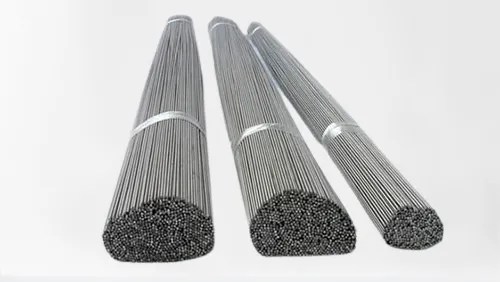
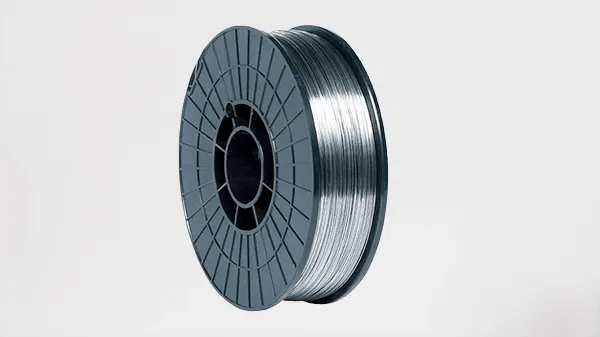
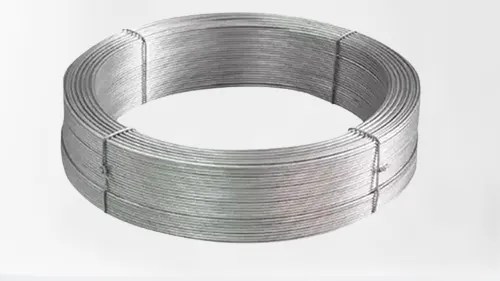
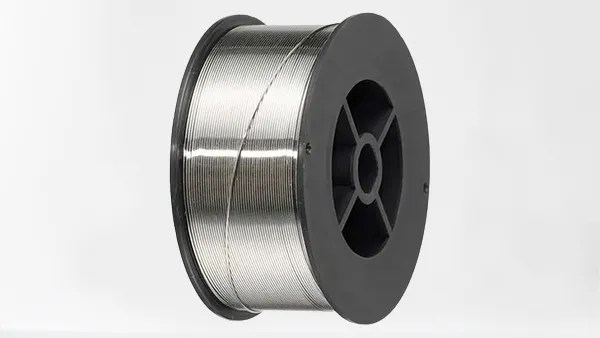
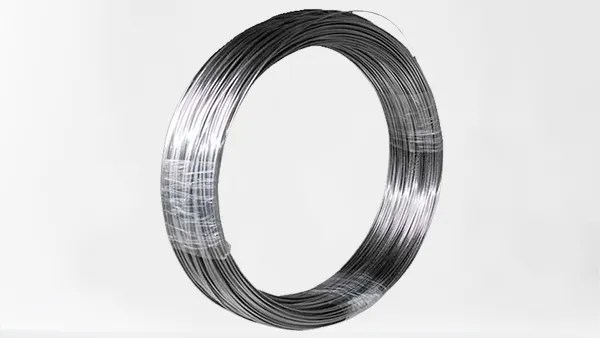
Key Features of Titanium Wire
1. High Strength-to-Weight Ratio
Titanium wire offers a remarkable strength-to-weight ratio, providing excellent strength while remaining significantly lighter than other metals. This makes it ideal for applications where reducing weight without compromising on performance is important, such as aerospace and automotive industries.
2. Corrosion Resistance
Titanium wire is highly resistant to corrosion, even when exposed to harsh environments such as saltwater, chemicals, or extreme temperatures. This feature makes it well-suited for applications in marine, chemical processing, and outdoor environments where long-term durability is required.
3. Biocompatibility
Titanium is biocompatible, meaning it does not react with bodily tissues or fluids. This property makes titanium wire an ideal choice for medical applications, such as surgical implants, orthodontic devices, and other medical instruments. Its hypoallergenic properties also make it safe for patients with sensitivities.
4. Flexibility and Ductility
Titanium wire is flexible and can be easily shaped and bent, allowing for a wide range of applications that require formability. Despite its flexibility, it maintains excellent strength and integrity, making it suitable for intricate work, including jewelry making and medical devices.
Applications of Titanium Wire
1. Medical and Dental Applications
Titanium wire is used extensively in the medical and dental industries due to its biocompatibility and strength. It is used in surgical sutures, orthopedic implants, dental braces, and orthodontic devices, providing a safe and durable solution for medical use. Titanium’s compatibility with the human body ensures it can remain implanted without causing adverse reactions.
2. Aerospace and Aviation
In the aerospace industry, titanium wire is used for various purposes, including fastening components, creating safety wire, and assembling critical aircraft parts. Its high strength-to-weight ratio makes it invaluable in reducing the overall weight of aircraft without compromising performance. This helps improve fuel efficiency and enhances overall safety.
3. Chemical Processing
Titanium wire is used in chemical processing applications where resistance to corrosion is essential. It is often used in the construction of chemical equipment, such as heat exchangers, and in environments that involve exposure to aggressive chemicals. Titanium’s resistance to a wide range of chemicals makes it an ideal choice for maintaining safety and reliability in chemical plants.
4. Jewelry Making
Titanium wire is also used in jewelry making due to its lightweight, hypoallergenic properties, and corrosion resistance. It is used to create unique jewelry pieces, including rings, necklaces, and earrings, offering a durable and stylish alternative to traditional metals. Its ability to be anodized also allows for a variety of colors, adding to its appeal in the jewelry industry.
5. Marine Applications
Titanium wire is highly resistant to seawater corrosion, making it ideal for use in marine environments. It is used in fishing equipment, underwater structures, and marine hardware, where durability and resistance to rust are crucial. The marine industry benefits significantly from titanium’s ability to withstand the harsh conditions of saltwater without degrading.
Titanium Wire Grades and Their Uses
1. Grade 1 Titanium Wire
Grade 1 titanium wire is commercially pure and offers excellent corrosion resistance and ductility. It is commonly used in chemical processing and marine applications where flexibility and corrosion resistance are essential. The ease of fabrication with Grade 1 titanium makes it a popular choice for intricate components.
2. Grade 5 Titanium Wire (Ti-6Al-4V)
Grade 5 is the most widely used titanium alloy, known for its high strength. Grade 5 titanium wire is used in aerospace, medical, and high-performance industrial applications where both strength and durability are critical. It is often used in demanding applications such as surgical implants and high-stress aerospace components.
3. Grade 9 Titanium Wire (Ti-3Al-2.5V)
Grade 9 titanium wire provides a good balance of strength, corrosion resistance, and formability, making it suitable for aerospace and industrial applications where moderate strength and flexibility are required. Its versatility makes it a preferred choice for parts that require both structural integrity and ease of installation.
Benefits of Using Titanium Wire
- Lightweight: Titanium wire is significantly lighter than other metals, making it ideal for weight-sensitive applications such as aerospace and automotive industries, where reducing weight is crucial for efficiency.
- Corrosion Resistance: Its resistance to rust and corrosion ensures long service life in challenging environments, reducing maintenance and replacement costs.
- Biocompatibility: Titanium wire is safe for medical use, making it a preferred choice for surgical and dental applications. Its hypoallergenic properties also make it suitable for individuals with metal sensitivities.
- Durability: Titanium wire’s high strength and ability to withstand harsh conditions make it a reliable choice for demanding applications across various industries.
Who Should Use Titanium Wire?
Titanium wire is ideal for industries requiring a strong, lightweight, and corrosion-resistant material. It is well-suited for manufacturers in aerospace, medical, marine, chemical processing, and jewelry sectors. Titanium wire’s versatility, durability, and safety make it a valuable solution for a wide range of applications, from high-performance engineering to intricate consumer products.
FAQ Section
- What Are the Main Benefits of Titanium Wire?
Titanium wire offers high strength, lightweight properties, corrosion resistance, and biocompatibility, making it suitable for various demanding applications. - Why Is Titanium Wire Used in Medical Applications?
Titanium is biocompatible, meaning it does not react with bodily tissues, making it ideal for surgical sutures, implants, and orthodontic devices. - How Does Titanium Wire Benefit the Aerospace Industry?
Titanium wire’s high strength-to-weight ratio makes it invaluable for fastening components and creating safety wire in aerospace applications, helping reduce aircraft weight and improve fuel efficiency. - Can Titanium Wire Be Used in Marine Applications?
Yes, titanium wire is highly resistant to seawater corrosion, making it suitable for marine hardware, fishing equipment, and underwater structures. - What Are the Differences Between Grade 1 and Grade 5 Titanium Wire?
Grade 1 titanium wire is commercially pure and offers excellent corrosion resistance, while Grade 5 is an alloy with higher strength, making it suitable for more demanding applications. - Is Titanium Wire Used in Jewelry Making?
Yes, titanium wire is popular in jewelry making due to its hypoallergenic properties, light weight, and resistance to corrosion, offering a durable and stylish alternative to traditional metals. - How Does Titanium’s Corrosion Resistance Benefit Chemical Processing?
Titanium wire’s resistance to corrosion ensures durability and longevity when used in chemical processing equipment exposed to aggressive chemicals. - What Applications Benefit Most from Grade 9 Titanium Wire?
Grade 9 titanium wire is often used in aerospace and industrial applications due to its balance of strength, corrosion resistance, and formability. - Is Titanium Wire Easy to Work With?
Yes, titanium wire is flexible and can be easily shaped and bent, making it suitable for applications that require intricate designs and detailed fabrication. - How Does Titanium Wire Compare to Stainless Steel Wire?
Titanium wire is lighter, stronger, and more corrosion-resistant compared to stainless steel wire, making it ideal for high-performance applications. - Why Is Titanium Wire Preferred in Orthodontic Devices?
Titanium’s biocompatibility and flexibility make it a preferred choice for orthodontic devices like braces, ensuring safety and comfort for patients. - Can Titanium Wire Be Welded?
Yes, titanium wire can be welded, particularly Grade 5, which has good weldability, making it suitable for various industrial and aerospace applications. - What Industries Benefit Most from Titanium Wire?
Industries such as aerospace, medical, marine, chemical processing, and jewelry benefit greatly from the unique properties of titanium wire. - How Does the Lightweight Nature of Titanium Wire Impact Its Use?
The lightweight nature of titanium wire helps reduce the overall weight of structures and devices, improving efficiency in aerospace, medical, and other industries. - Why Is Titanium Wire Preferred Over Other Metals for Marine Hardware?
Titanium’s superior corrosion resistance, especially in saltwater environments, makes it a preferred choice over other metals for marine hardware.
Conclusion
Titanium wire provides numerous benefits, including high strength, lightweight properties, corrosion resistance, and biocompatibility. Its versatility and durability make it suitable for a wide range of applications in industries such as aerospace, medical, marine, chemical processing, and jewelry making. Choosing titanium wire ensures reliability, efficiency, and enhanced performance in demanding environments.

